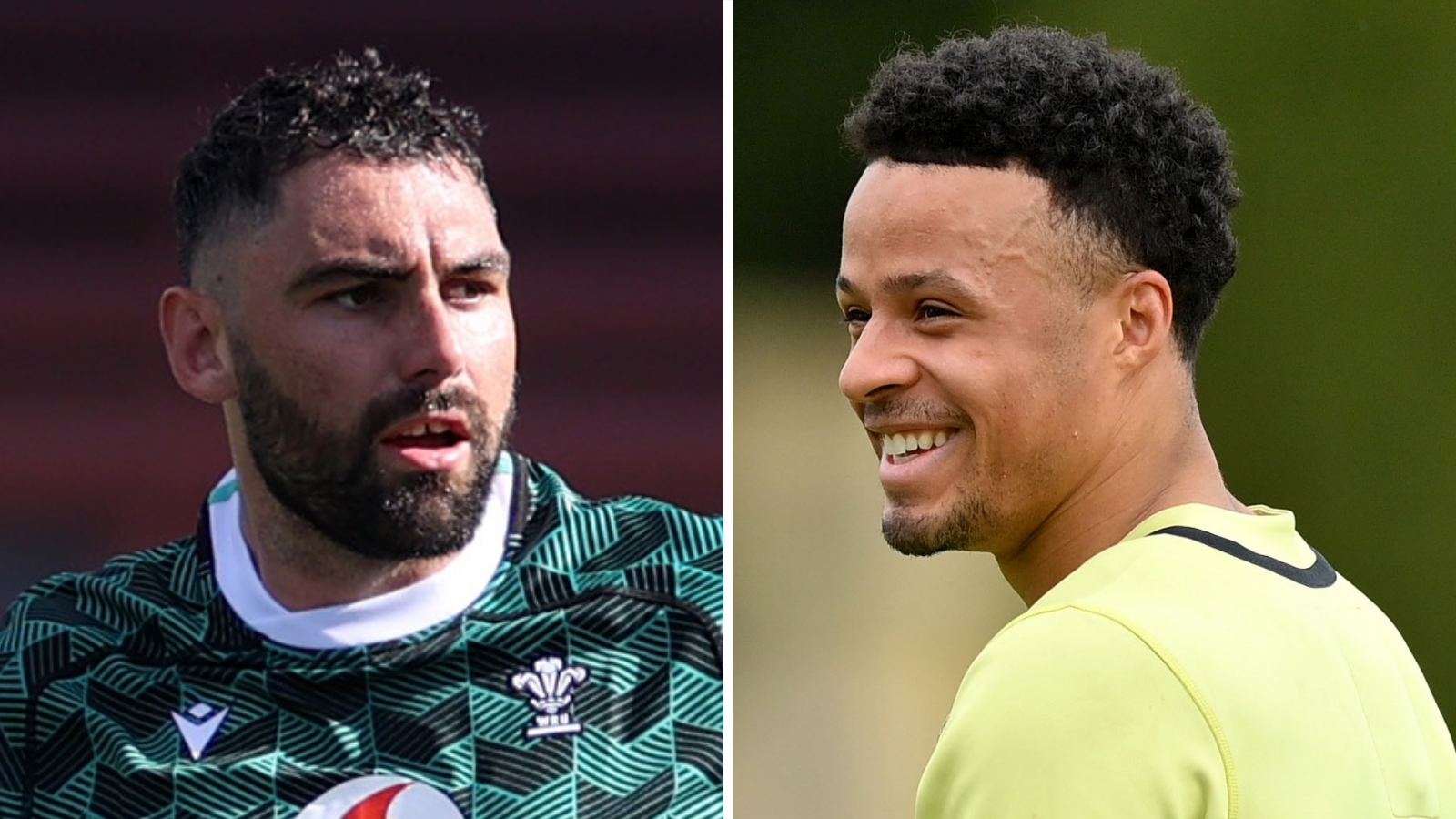Grace and Wales' union stars in a league of their own
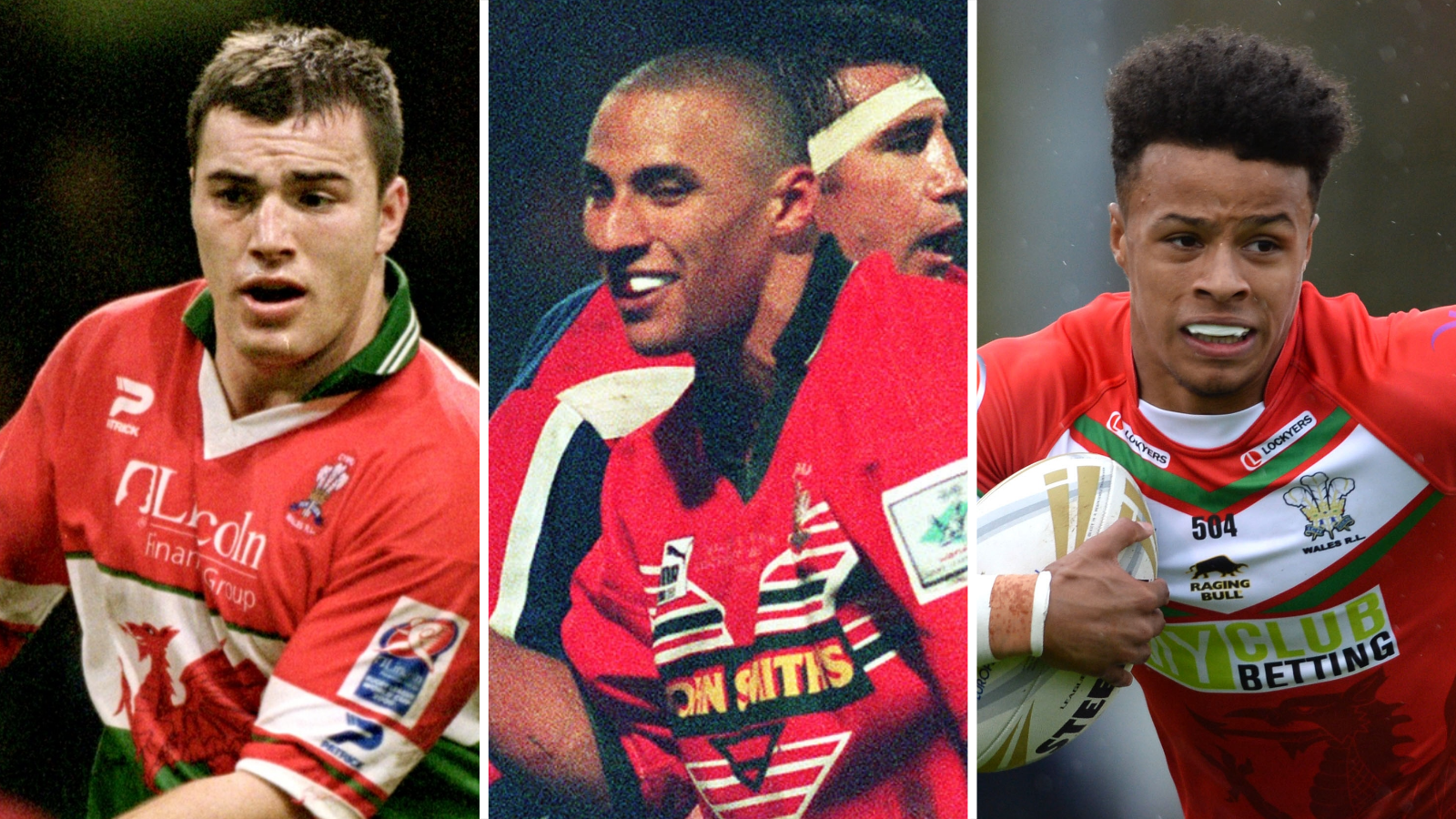
Iestyn Harris, Anthony Sullivan and Regan Grace all played rugby league for Wales
- Published
Down under and crossed over – Regan Grace's codebreaking journey is almost complete.
A Grand Final and Challenge Cup winner with St Helens, the Port Talbot-born winger certainly made his mark in league.
But now, after a shock call-up for Wales’ touring party to Australia, Grace is set to join a union of just two others when he lines up for Warren Gatland's side in Brisbane on Friday searching for a winning end to their summer.
And even though caps won't be awarded for the final tour match with Queensland Reds, it doesn't alter the fact Grace will become just the third Welshman to go from league to playing union for Wales.
Only Iestyn Harris and Anthony Sullivan can lay claim to a similar journey, both making their international union bows in the same game 23 years ago.
And while other nations have either benefited or experimented since – think New Zealand’s Sonny Bill Williams or England’s Sam Burgess – Grace would be the first for Wales since a chastening Cardiff defeat by Argentina in 2001.
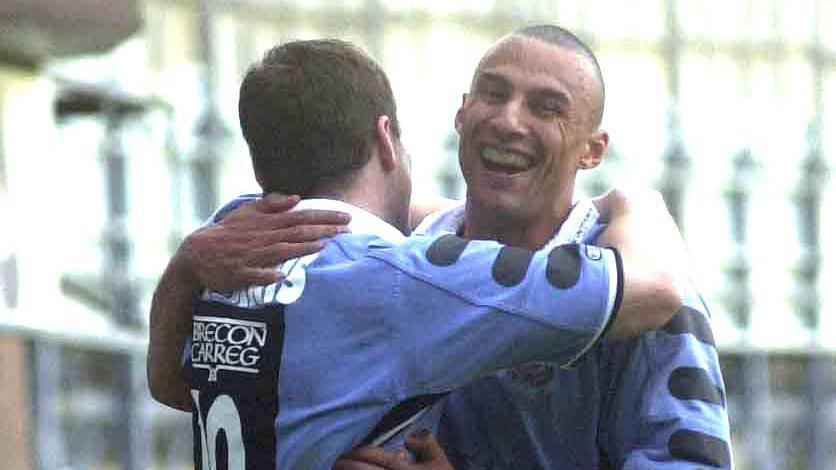
Iestyn Harris and Anthony Sullivan both joined Cardiff when they switched from the 13-man game
Clearly, there have been scores who have crossed the rugby divide since the sport’s professional-amateur split in 1895.
And there have been more than 100 Welsh dual-code internationals, from Dai Jones at the start of the 20th century to former Lions captain Gareth Thomas finishing his career in league in 2011.
Before union went professional 1995, going north meant never to return. Even after the change almost 30 years ago, those who returned from league - including Jonathan Davies, Scott Quinnell, Scott Gibbs, Allan Bateman and Dai Young - had first made their name in the 15-a-side game.
In truth, Grace was initially a union convert having started out with local side Aberavon Quins and joining the Ospreys academy system before being snapped up by Saints in 2017.
He spent six seasons in Super League – scoring 89 tries in 143 games – before deciding to switch codes with a move to French Top 14 side Racing 92 in 2022.
Injury wrecked his Parisian experience, so it means if Grace does make his debut down under, he will be doing so without a minute of competitive rugby union, with his only games for new club Bath coming in the shape of two friendlies in March against Gloucester and Leinster.
That is not something that could be said about Harris and Sullivan – but only just.
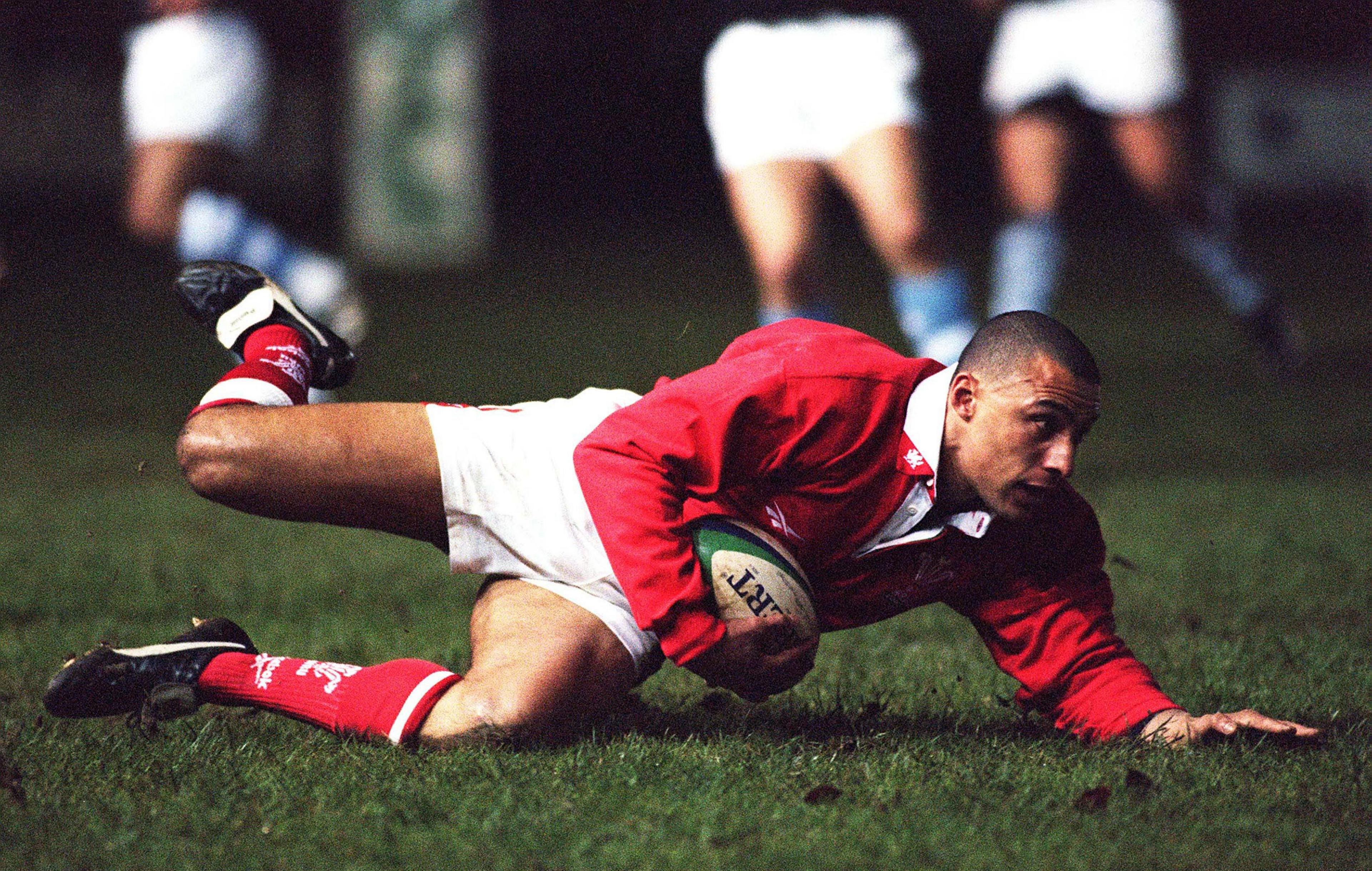
Sullivan scored on his Wales A debut against Argentina in 1998 in only his third game of union
Harris had just 200 minutes for Cardiff to his name when he was picked in the iconic red number 10 jersey for a Millennium Stadium autumn international.
Sullivan had managed 17 games for the Arms Park side when he came in for the injured Shane Williams to start the same afternoon.
Yet three years earlier, the St Helens wing of league royal stock had been named in Graham Henry’s squad for his first match in charge, a Wembley Test against the Springboks – despite never playing a union game.
The son of the brilliant Cardiff-born king of Hull, Clive, Sullivan was a Super League superstar Wales were ready to take a chance on.
Capped by Great Britain, he had switched codes for a three-month deal with Cardiff, and was selected by Wales within a week.
He had two games to get up to speed - one a Welsh Cup game against Cilfynydd in what was his first taste of union, the other a cross-border friendly with West Hartlepool. He scored in both.
In the end, Henry opted against it (Test Lions Gareth Thomas and Dafydd James played on the wings that day) with Sullivan instead playing for Wales A against Argentina.
“A marvellous prospect for the future if Welsh rugby,” said Henry ahead of the game, adding it was "only a matter of time before he gets a greater feel for the 15-man game".
With St Helens demanding he return for the start of the Super League season, ending his initial union experience after eight games, it was not until he rejoined Cardiff in 2001 did that time come.
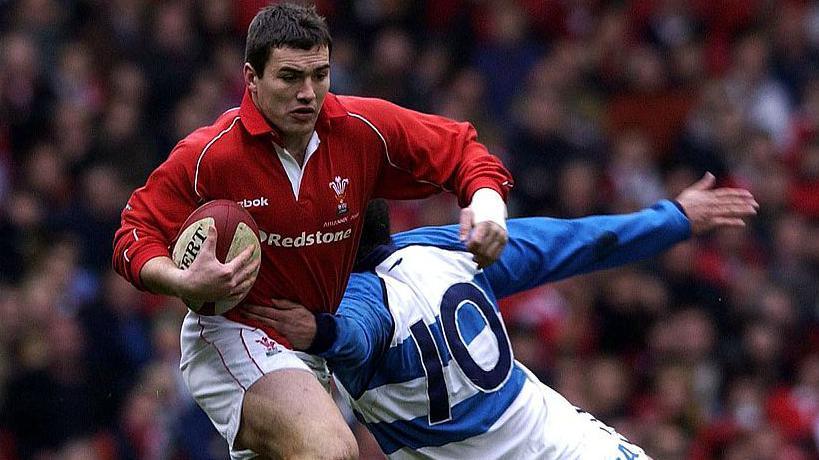
Harris scored 108 points over his three years with Wales, including one try in a 2002 defeat against England at Twickenham
By which point he had Harris for company, the stand-off turned outside-half who – if you believed the hype – had come to save Welsh rugby.
The grandson of Abercarn-born Norman Harris, who had turned out for Ebbw Vale and Pontypool before going north, the then-25-year-old had dominated with Leeds in Super League, enough for the Welsh Rugby Union to arrange a deal worth reportedly as much as £1.5m.
He had only added to the pressure by scoring a hat-trick on his first start for Cardiff in a European game against Glasgow.
“In a sense that was the worst thing that could have happened to me,” said Harris at the time.
A year after lining up alongside Sullivan for Wales' rugby league side at the same stadium, Harris’ debut was marred by mistakes that led to an opening Argentina try, while his game-management was criticised in contrast to counterpart Felipe Contemponi as the Pumas ran out 30-16 winners, their first victory over Wales.
Sullivan would play just once more against Tonga before seeing out his contract – and career – at Cardiff, retiring from both codes in 2003.
Harris was switched to inside centre, featuring at the 2003 Rugby World Cup before heading back to Super League a year later after 25 caps, signing for Bradford Bulls and helping them to a title and World Club Challenge success.
Harris went on to coach Wales’ rugby league side, coaching a young Regan Grace. Almost 23 years since Harris went south, no doubt there will be an interested glance at how the union rookie fares down under.
Related topics
- Published17 July 2024
